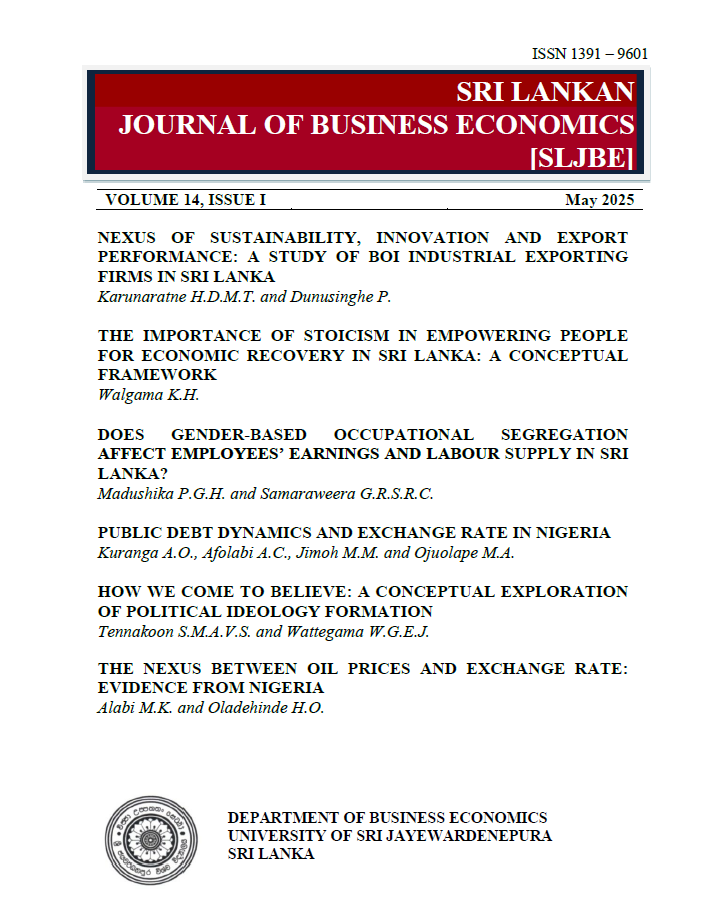DOES GENDER-BASED OCCUPATIONAL SEGREGATION AFFECT EMPLOYEES’ EARNINGS AND LABOUR SUPPLY IN SRI LANKA?
DOI:
https://doi.org/10.31357/sljbe.v14.8387Abstract
As a result of gender dominance in various occupations, each job becomes a job that is occupied more or less by the respective gender. It can be interpreted as a situation of occupational segregation based on gender. The main objective of the study is to identify how earnings and working hours of employees are affected due to gender based occupational segregation. Human Capital theory, Becker’s model, discrimination, and other feminist theories were grounded for the study. It uses an endogenous switching regression model to examine how the monthly earnings and weekly working hours of employees in male-dominated and female-dominated jobs differ with changes in selected variables. The study uses 29170 data to represent employees in Male-dominated, female-dominated, and gender-integrated jobs classified according to the percentage of men and women in each occupation. The findings show that there are significant earnings differentials and labour supply differences in terms of working hours due to occupational segregation. To promote the equality of labour market participation, organizations should give priority to gender-neutral recruitment opportunities, supporting parents in continuing work-life balance through adjustable work arrangements with the government career guidance support. In future research direction, it’s important to focus more on vertical occupational segregation.

